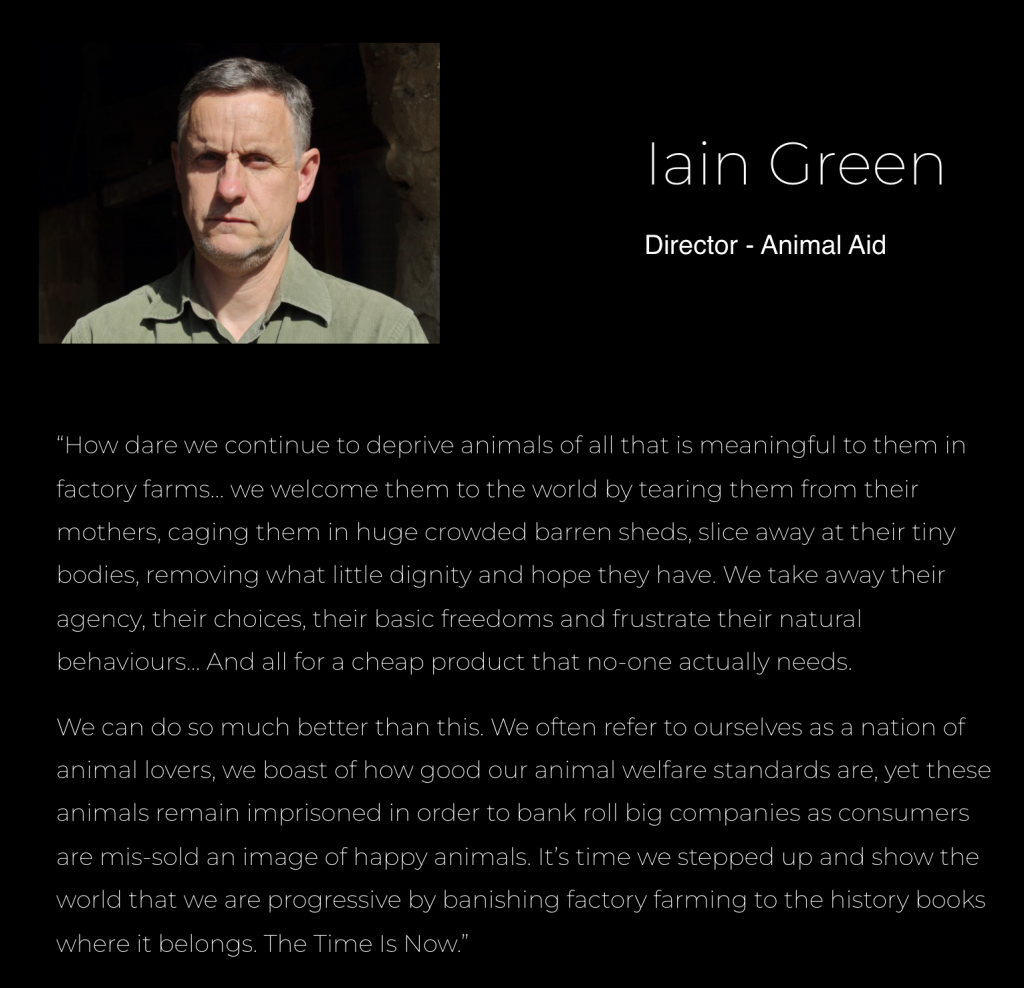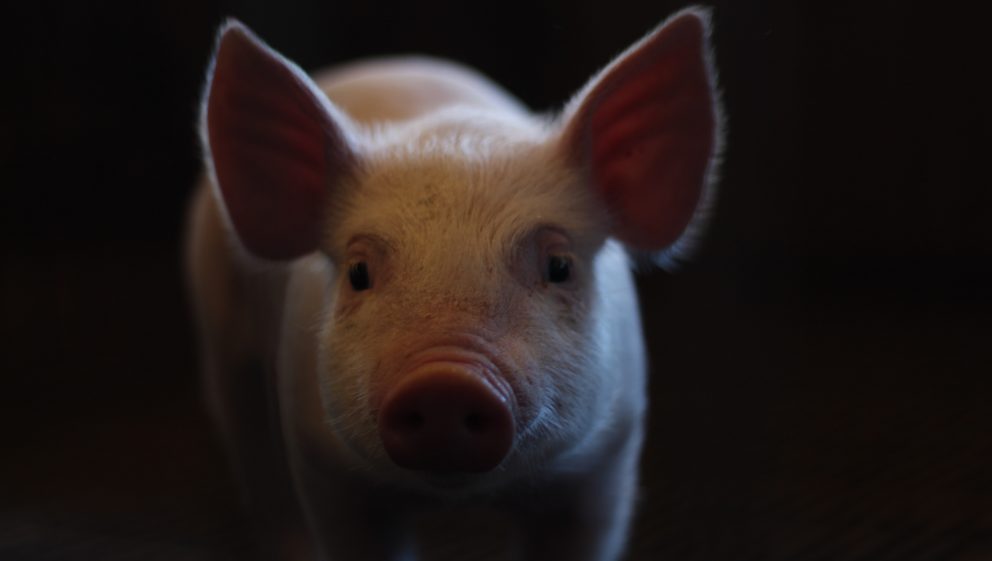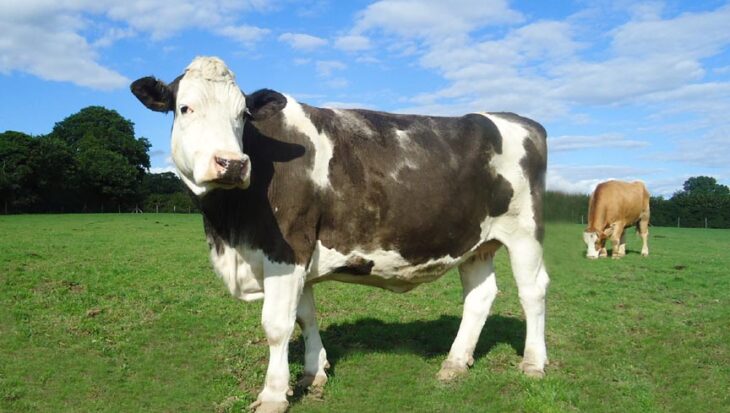In the UK, we are fortunate to have so much knowledge at our fingertips. We swim in a seemingly endless stream of information. Why then, shouldn’t the labels on all animal products explain clearly how a farmed animal both lived and died? Would people still readily purchase and consume animals products if they knew the reality of that animal’s life and death?
It shouldn’t just be left to activists and advocacy groups to share this information. It is unfair and patronising to assume that consumers simply do not care, or that they are incapable of processing this information.
Animal Aid responded to the recent government ‘Call for Evidence – Labelling for Animal Welfare’
We called for labels on animal-derived products to include information relating to the rearing, lifespan, stunning and slaughter of that animal. This should cover all animal species, across all food systems. We highlighted that companies have a duty to ensure transparency; to provide clear and concise information on packaging, websites, advertisements and point-of-sale displays.
Factory farming continues to thrive, amid public confusion about the truth behind current labels and marketing. The idea of ‘locally sourced’, which hints at ‘better welfare’ standards, is somewhat meaningless when we consider that all intensive farms are local to someone. Labelling information can be woeful at best, downright deceptive at worst and there is much room for improvement.
We must be honest about the fact that many people do not know how animals are farmed and killed. To quote the CEO of Red Tractor from an article:
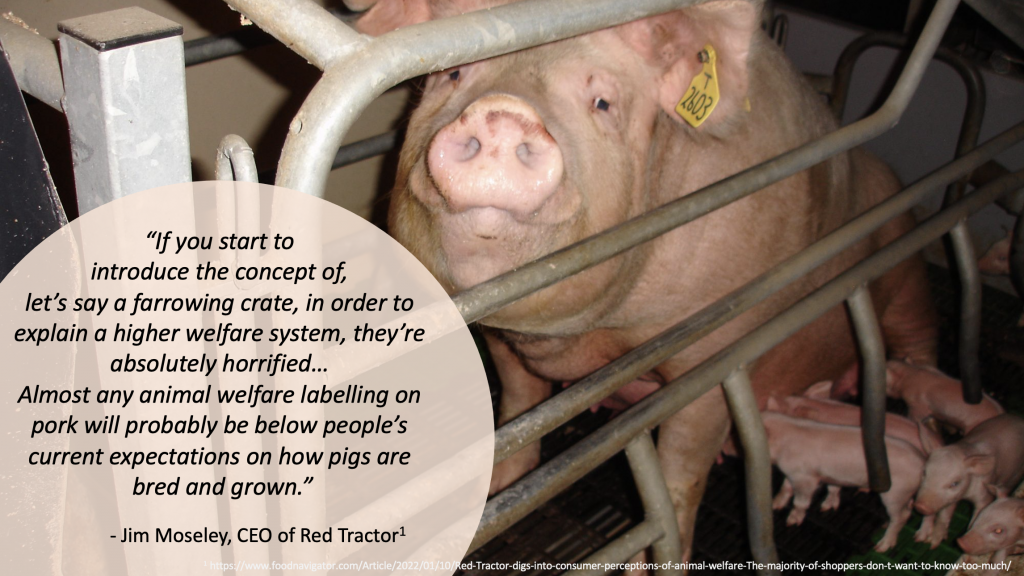
And whilst there is no doubt that some consumers simply ‘don’t want to think about it’, most do hope that ‘all animals are treated well’. In recent polling by Compassion in World Farming a sample of 1,990 UK adults were asked: “Do you think that meat and dairy products should or should not be labelled to show the conditions that animals have been reared in, similar to the way shell eggs are currently labelled?” The majority, by 68%, agreed that products should be labelled with their method of production.
Red Tractor 2020 consumer research on pork meat revealed that shoppers were under the misconception that the pigs that they consumed, were all bred and reared in spacious areas outside with access to straw.
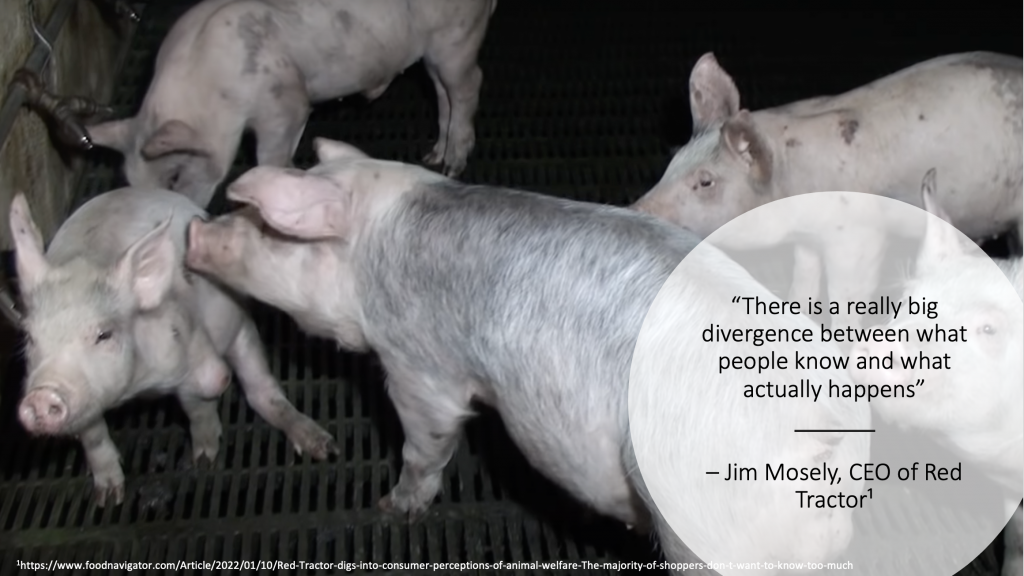
Most people are not aware that the majority of UK pigs (86%) are subjected to hellish ‘high concentration CO2 gas stunning’, where ‘they are lowered into a gas chamber where they scream, thrash, kick and struggle to escape as the gas causes burning sensations throughout their bodies and they suffocate.’ According to Animal Liberation.
Could many members of the public bear to witness this? If they could bear it, would they still consume animal products? If labelling of products accurately reflected how the animals had lived and died, then consumers could assess this information as part of their buying behaviour.
Intensive animal agriculture threatens our very existence, but the solution is obvious. Veganuary is going from strength to strength. Last year, 582,000 people worldwide pledged to try going vegan for the month of January – this figure was surpassed in the first two weeks of signups for 2022!
Just this week an extremely determined and knowledgeable group of volunteers, Scrap Factory Farming, brought a ground-breaking legal challenge to the UK government – centred on the significant disease risk and accelerating development of antibiotic resistance, associated with intensive animal farming. A full review is long overdue on the negative health impacts of factory farming, in order to introduce appropriate safeguards to protect the public.
Animal Aid proudly support this challenge
